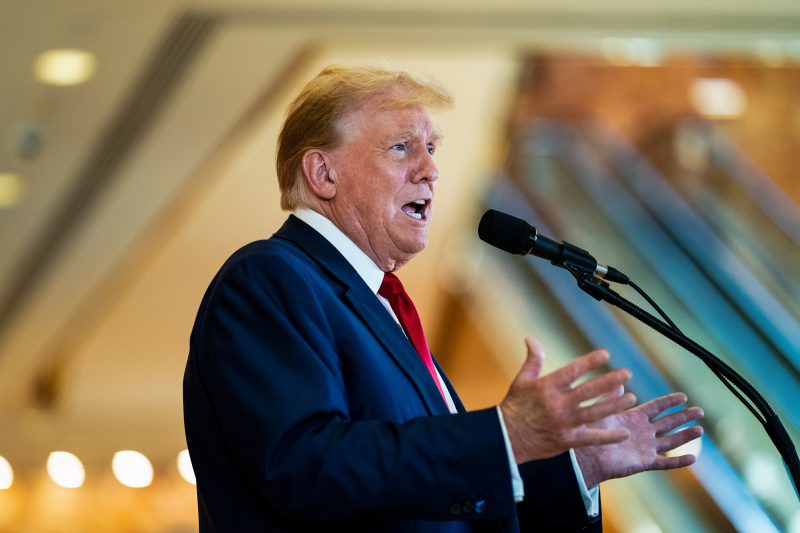The recent guilty verdict against former President Donald Trump has sent shockwaves through the political landscape, further sharpening the already intense focus on the two key questions dominating this election cycle. As the trial unfolded, it became clear that the outcome would have far-reaching implications for both the future of the Republican Party and the overall trajectory of American politics. With Trump’s legal troubles mounting, pundits and politicians alike are grappling with the following pressing questions.
The first major question that has been accentuated by Trump’s guilty verdict is the issue of accountability in politics. Since his presidency, Trump has faced numerous accusations of wrongdoing and misconduct. However, his ability to evade consequences for much of his time in office raised serious concerns about the integrity of the political system. The guilty verdict now raises the question of whether accountability can truly be upheld in a system that has often seemed lenient towards those in power.
Many believe that the outcome of Trump’s trial will serve as a litmus test for the willingness of the justice system to hold powerful figures accountable. The guilty verdict has showcased that, despite the challenges and backlash, it is possible to see justice prevail. This has reinvigorated calls for stronger mechanisms of accountability in politics, as well as increased scrutiny of those in positions of power.
The second crucial question brought to the forefront by the guilty verdict is the future direction of the Republican Party. Trump’s tumultuous tenure as president has deeply divided the GOP, with his steadfast supporters refusing to abandon him and more moderate voices calling for a reevaluation of the party’s core values. The guilty verdict against Trump has further exacerbated these internal divisions, as party members must now grapple with the implications of having a former president convicted of a crime.
One of the main challenges facing the Republican Party in the aftermath of the guilty verdict is how to move forward and redefine its identity. With Trump still maintaining a significant influence over a large portion of the party’s base, Republicans face a daunting task in charting a course that will both retain his supporters and appeal to a broader electorate. The guilty verdict against Trump underscores the need for the GOP to engage in deep introspection and reassess its priorities in order to navigate the turbulent waters ahead.
In conclusion, the guilty verdict against Donald Trump has brought the two central questions of accountability in politics and the future of the Republican Party into sharp focus. The outcome of this trial has highlighted the importance of holding those in power accountable for their actions and has underscored the significant challenges facing the GOP as it seeks to navigate a post-Trump era. As the election season progresses, it remains to be seen how these questions will continue to shape the political landscape and influence the decisions of voters and politicians alike.

